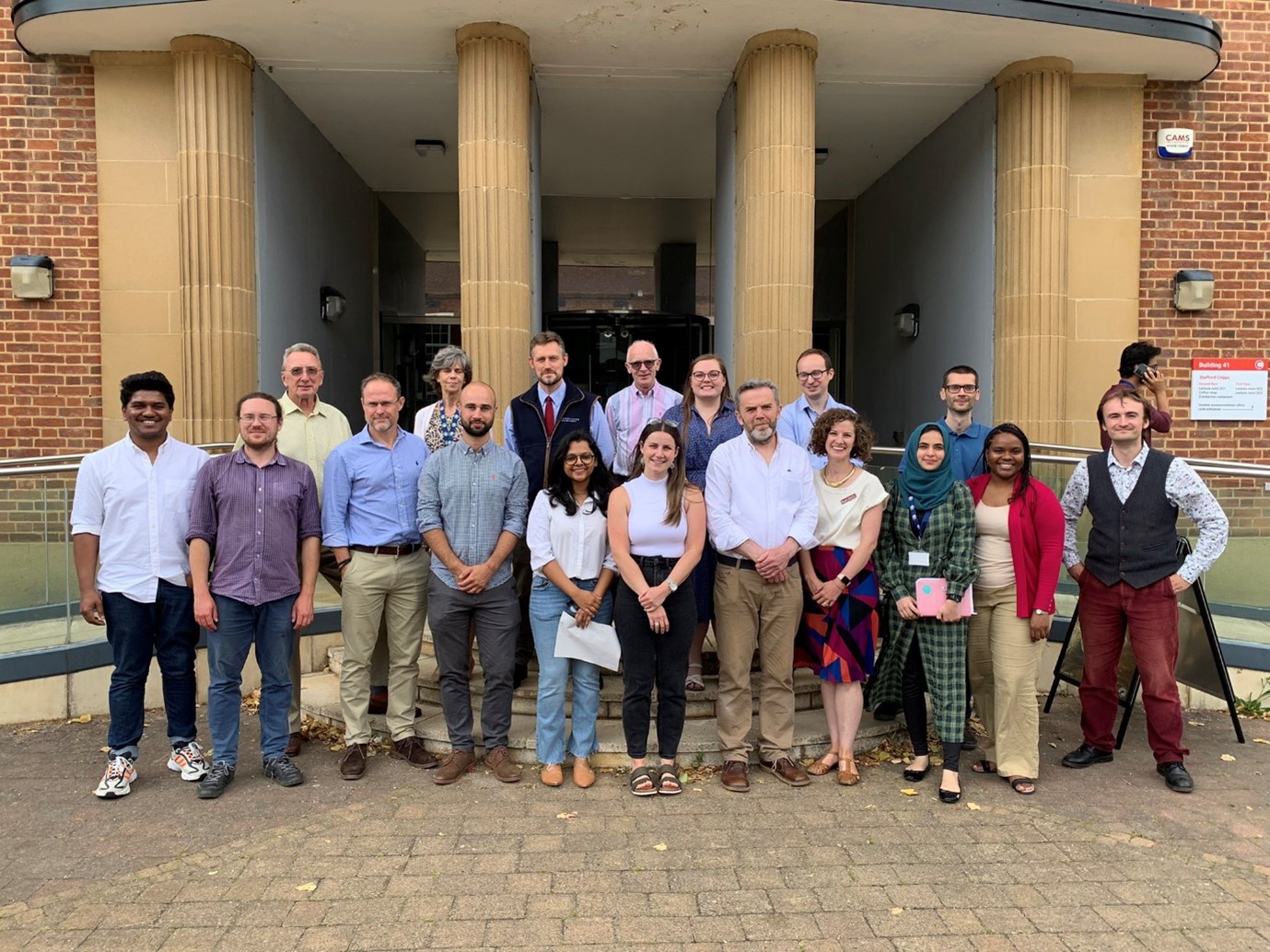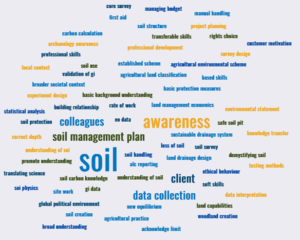The future of soil science – investing in the next generation of soil scientists
02/08/2022

Dr Dan Evans, 75th Anniversary Research Fellow, School of Water Energy and Environment
The perceived importance of sustainable soil management has surged in recent years. Soils, and their delivery of critical goods and services, are a fundamental asset for the health, sustainability, and resilience of the terrestrial environment, its ecosystems, as well as the longevity and productivity of society. Recently, there has been widespread recognition from researchers, industry, and policy arenas of the burgeoning pressures faced by soils, and the urgency needed to deploy robust land management strategies to address these. For example, a growing number of businesses and organisations are now integrating sustainable soil management strategies into their operational plans. This activity has accelerated following a series of recent policy launches by the UK Government. For example, companies on the London Stock Exchange will be obliged to design detailed plans to transition to net-zero by 2023, as part of the UK’s effort to combat climate change post-COP26.
The role of soils to sequester carbon is widely acknowledged, but many organisations still lack the basic knowledge about the soil management practices that can best deliver healthy, sustainable, and resilient soils. Addressing this shortfall in knowledge and skills is more vital than ever. For instance, Defra has recently launched their Sustainable Farming Incentive scheme, the first of three new environmental schemes for which the management and monitoring of soil health is one of the primary objectives. Whilst this is a welcomed step towards protecting soil resources at the national scale, it is pivotal that organisations and sectors are sufficiently (up)skilled with the knowledge, understanding, tools, practices, and resources to achieve optimal soil management.
Over the past year, a team of researchers led by Dr Dan Evans from SWEE’s Centre for Soil, Agrifood, and Biosciences have been working on developing new soils-focused sustainable land management training materials. Developing these training materials relies on precisely targeting them towards the needs of industry to ensure they can attract a combination of stakeholders from business, industry-sponsored students, and those seeking to pursue a career focussing on sustainable land and soil management and land restoration. It is therefore vital that we, as researchers, network with a wide range of stakeholders, and invite them into a co-design process.
On the 14th July, we hosted representatives from research, industry, consultancy, and policy sectors at a co-design workshop. These multisectoral events are so important, especially for soil scientists, because it allows us as researchers to learn about the precise challenges facing different industries and maximize the impact of our research. In this case, the aim of the workshop was to consider the core attributes required of future learners and practitioners in soil science, such as the technical knowledge and understanding, but also transferable skills such as teamworking and problem solving. In the morning, we divided the attendees into three diverse and multisectoral groups to discuss these in detail, before feeding back to everyone before lunch. Some of the ideas coming out of this session can be found in the word-cloud below.

In the afternoon, the groups reconvened to discuss the key themes and topics that should be considered when developing a programme of soil science training. Once again, many common themes emerged including the need for a basic understanding of the soil system and its interactions with other components of terrestrial systems, including water and plants. The theme of accessing and interpreting data was also mentioned, particularly in terms of the use of Earth observation data, as well as data obtained via social science methods. A blend of practical (i.e., field-based) experience with desk-based studies (e.g., GIS, data management) was also encouraged by those in attendance.
In addition to the programme, a group of ten MSc and PhD students from SWEE’s Environment and Agrifood programmes were invited to the workshop’s lunch and networking session to present their projects and research to workshop attendees. This provided the students with the opportunity to get valuable experience in networking with industry. Likewise, it allowed our guests to learn more about some of Cranfield’s current research interests and projects. This was followed up with a couple of facility tours led by Professor Jane Rickson and Dr Ian Truckell where guests were taken around our soils laboratories, greenhouses, the VR suite, and our soils archives.
Categories & Tags:
Leave a comment on this post:
You might also like…
Company codes – CUSIP, SEDOL, ISIN…. What do they mean and how can you use them in our Library resources?
As you use our many finance resources, you will probably notice unique company identifiers which may be codes or symbols. It is worth spending some time getting to know what these are and which resources ...
Supporting careers in defence through specialist education
As a materials engineer by background, I have always been drawn to fields where technical expertise directly shapes real‑world outcomes. Few sectors exemplify this better than defence. Engineering careers in defence sit at the ...
What being a woman in STEM means to me
STEM is both a way of thinking and a practical toolkit. It sharpens reasoning and equips us to turn ideas into solutions with measurable impact. For me, STEM has never been only about acquiring ...
A woman’s experience in environmental science within defence
When I stepped into the gates of the Defence Academy it was the 30th September 2019. I did not know at the time that this would be the beginning of a long journey as ...
Working on your group project? We can help!
When undertaking a group project, typically you'll need to investigate a topic, decide on a methodology for your investigation, gather and collate information and data, share your findings with each other, and then formally report ...
From passion to purpose: My journey at the Pinnacle of Aviation
By: Sultana Yassin Abdi MSc Air Transport Management, Current Student Born and raised in the vibrant landscape of the UAE, with roots stretching back to Somalia, my life has always been ...






